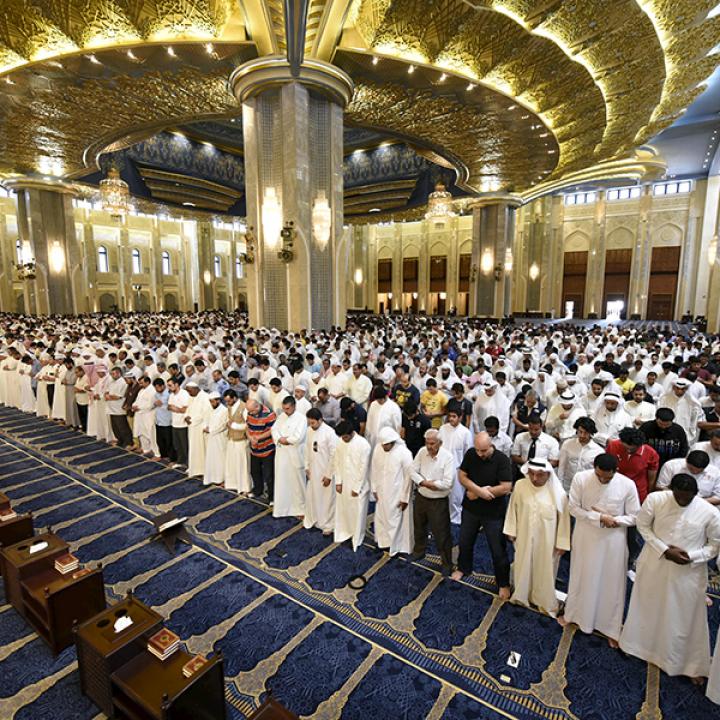

If left 'unmanaged,' future political movements in Kuwait may fall back to the more familiar and well-organized tribal Islamist leadership rivaled by leftist groups.
November 21, 2016
A quick glance at the political history of Kuwait leads to one unmistakable conclusion: all political opposition movements have been triggered by tyranny and corruption, and they were never based on foreign affiliations or ideology. Al-Sabah have ruled since 1752, and yet tyranny was not introduced to Kuwaiti culture until 1896. The House of Sabah did not take power by force, but were rather chosen by the people as watchmen, judges, and rulers. Moreover, the Kuwaiti government at the time was poor and totally dependent on customs and tariffs levied on wealthy merchants who wanted to support their new nation. This made it unlikely that a tyrant would rise from the House of Sabah. That was true, at least, until 1896, when Mubarak al-Sabah killed his two elder siblings and usurped the throne, triggering the first recorded political protest in Kuwait's history. However, it was during the era of his grandson Ahmed, who came to power in 1921, that tyranny and oppression climaxed and we first saw politically motivated killings, torture, imprisonment, and persecution of political dissidents.
Ahmed was succeeded by Abdullah, who succumbed after a few years of political unrest, and Kuwait elected its founding council to draft the country's first constitution in 1962. Since then, the country has enjoyed partial democracy and significant freedom of expression relative to its neighbors. In the constitutional era, a progressive nationalist movement formed the first opposition bloc in the parliament. However, to counter this movement's growing appeal, the government supported Islamist groups, thrusting the Muslim Brotherhood into the forefront of political life.
Since 2006, corruption and incompetence have reached unparalleled levels in Kuwait, which stirred an opposition movement by all shades of society. The movement achieved unprecedented results in 2011, removing a sitting prime minister and a presumptive heir to the throne, and along the way revived the all but dead nationalists and communists, galvanized the popular yet unorganized socialists, and reenergized the thriving Islamists. The movement has since receded, but with the increased government corruption and incompetence it is bound to rekindle and gain momentum. However, it is fair to ask: what form will the next movement take, and who will lead it?
To answer these questions, we need to establish some underpinnings. First, the vast majority of Kuwaitis are Muslims but not Islamists. Second, most Kuwaitis associate the glorious past of the country with the progressive leftist movements of the 1960s and 1970s. Third, Kuwait's branch of the Muslim Brotherhood is the only organized political party with a substantial following. Other parties either lack organization and structure or have only a small number of subscribers. It's also worth noting that the last wave of political protests were neither led nor incited by Islamists, though they did play a significant role in providing crowds. And the majority of the protesters, Islamists or not, were of tribal background with roots in Saudi Arabia, and are more prone to be affected by the current monarchy-forced liberalization of the neighboring kingdom. This will grant emerging liberal movements greater access to larger numbers of tribal youths. In addition, low oil prices will rid the Gulf's populations of the curse of affluence, which has paralyzed them for decades.
All opposition movements have been triggered by tyranny and corruption, yet never throughout the 264-year history of Kuwait has any faction sought to overthrow the rule of al-Sabah. Even today, roughly only a tenth of Kuwaitis desire true democracy with a constitutional monarchy preserving the status of the ruling family. Another tenth prefer to live under absolute monarchy, while the remaining majority seek varying degrees of reform to the current system that would more or less preserve the status quo. This may be attributed to affluence, fear of change, and a lack of positive examples of democracies in the region.
Against this backdrop, it is still possible for future parties leading the sociopolitical change to be liberal and secular, and neither Islamist nor monarchist. It is a fact that the House of Sabah is losing its popularity and support among Kuwaitis, and the demonization of the Brotherhood and the outdatedness of Salafists diminish the Islamists' chances of leading the political future of the country in the long run. However, readiness on the ground puts the Brotherhood at an advantage to capitalize on the sociopolitical change when it happens. Perhaps, similar to North Africa, Islamists are destined to be the gate through which democracy makes its debut in the Gulf. If left "unmanaged," future political movements may fall back to the more familiar and more organized tribal Islamist leadership rivaled by leftist groups. Western-style liberal parties do not stand a chance, unless smaller groups are cultivated and supported by the West. The conditions are ripe to plant some magic liberal beans in the region.


